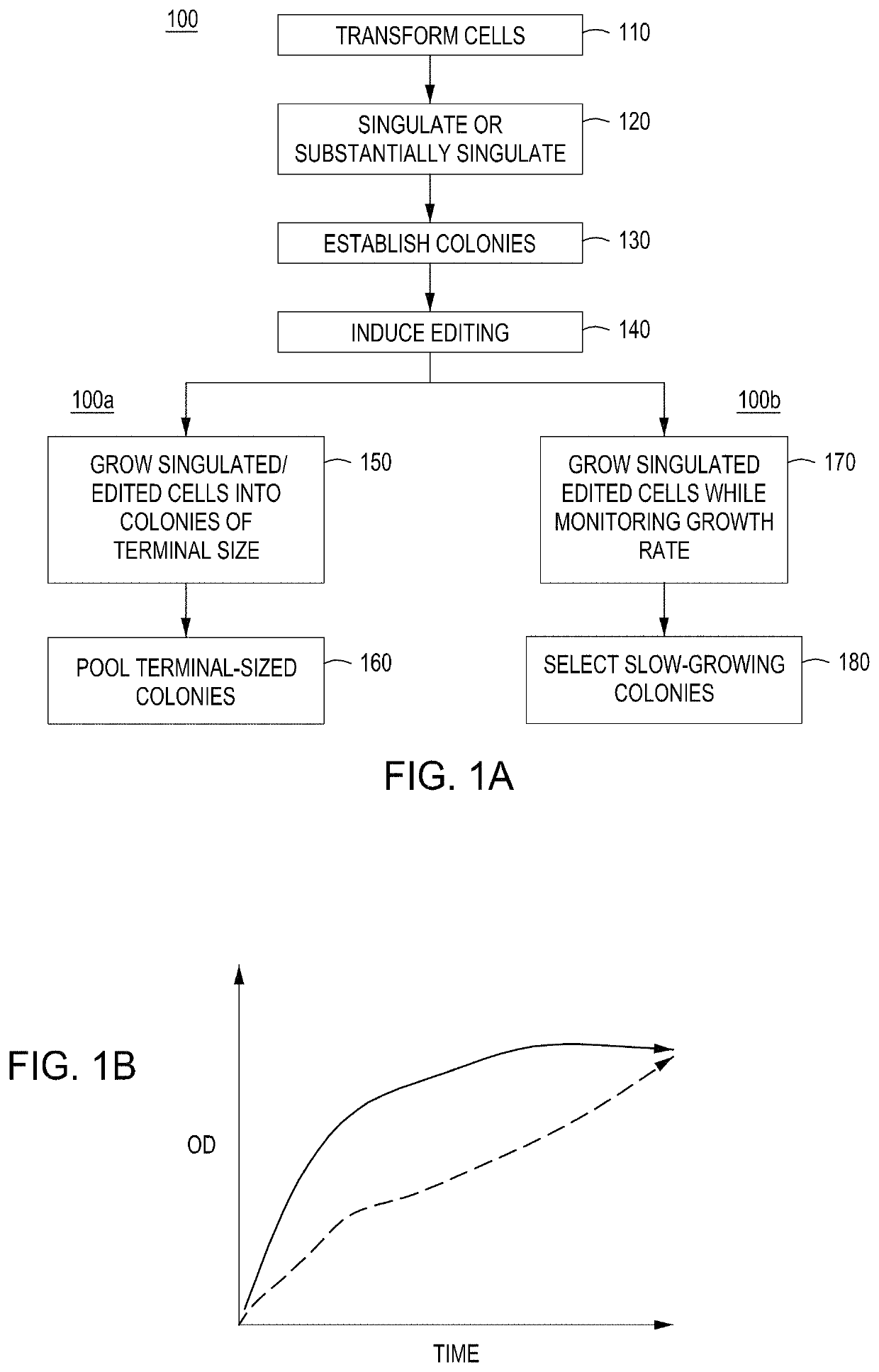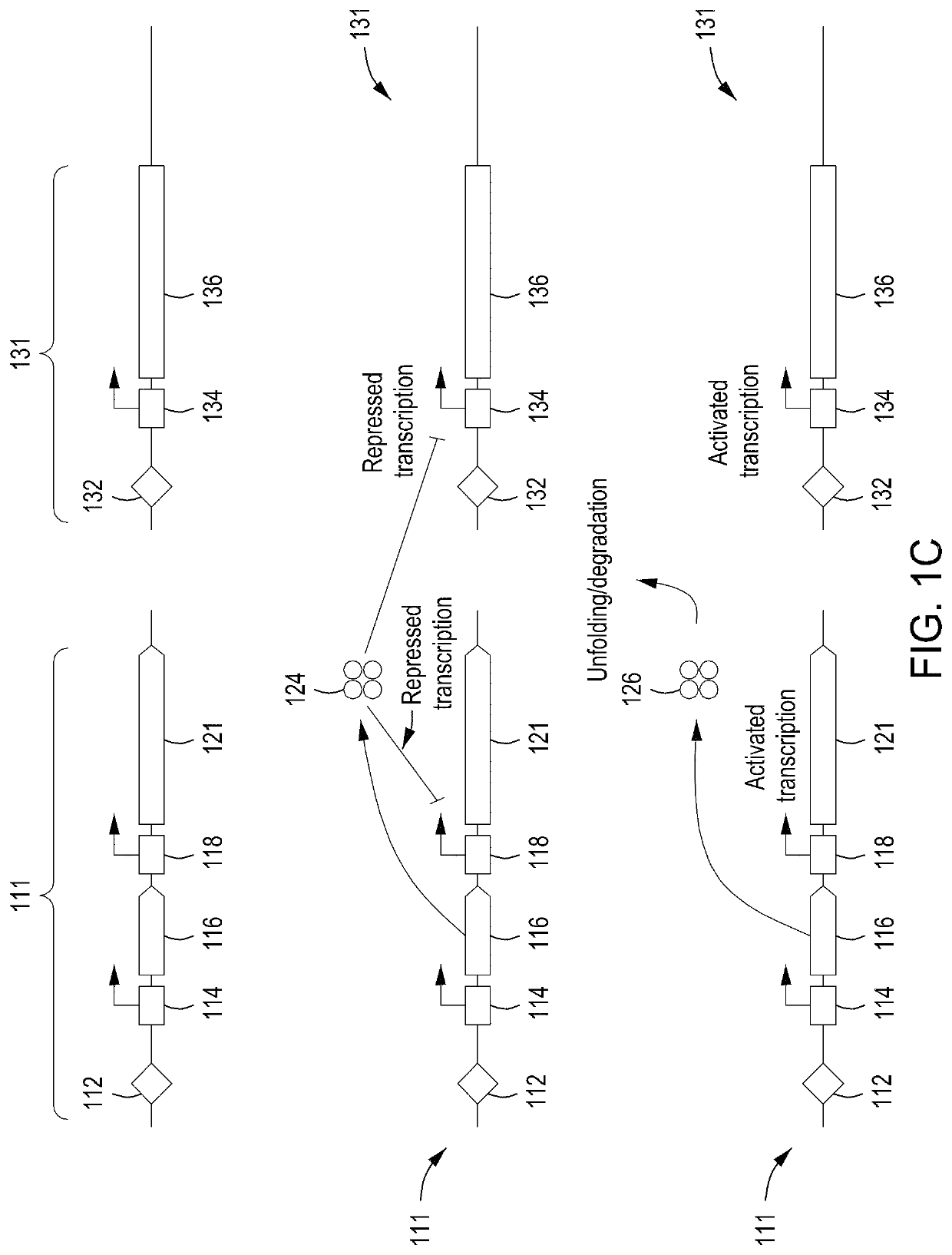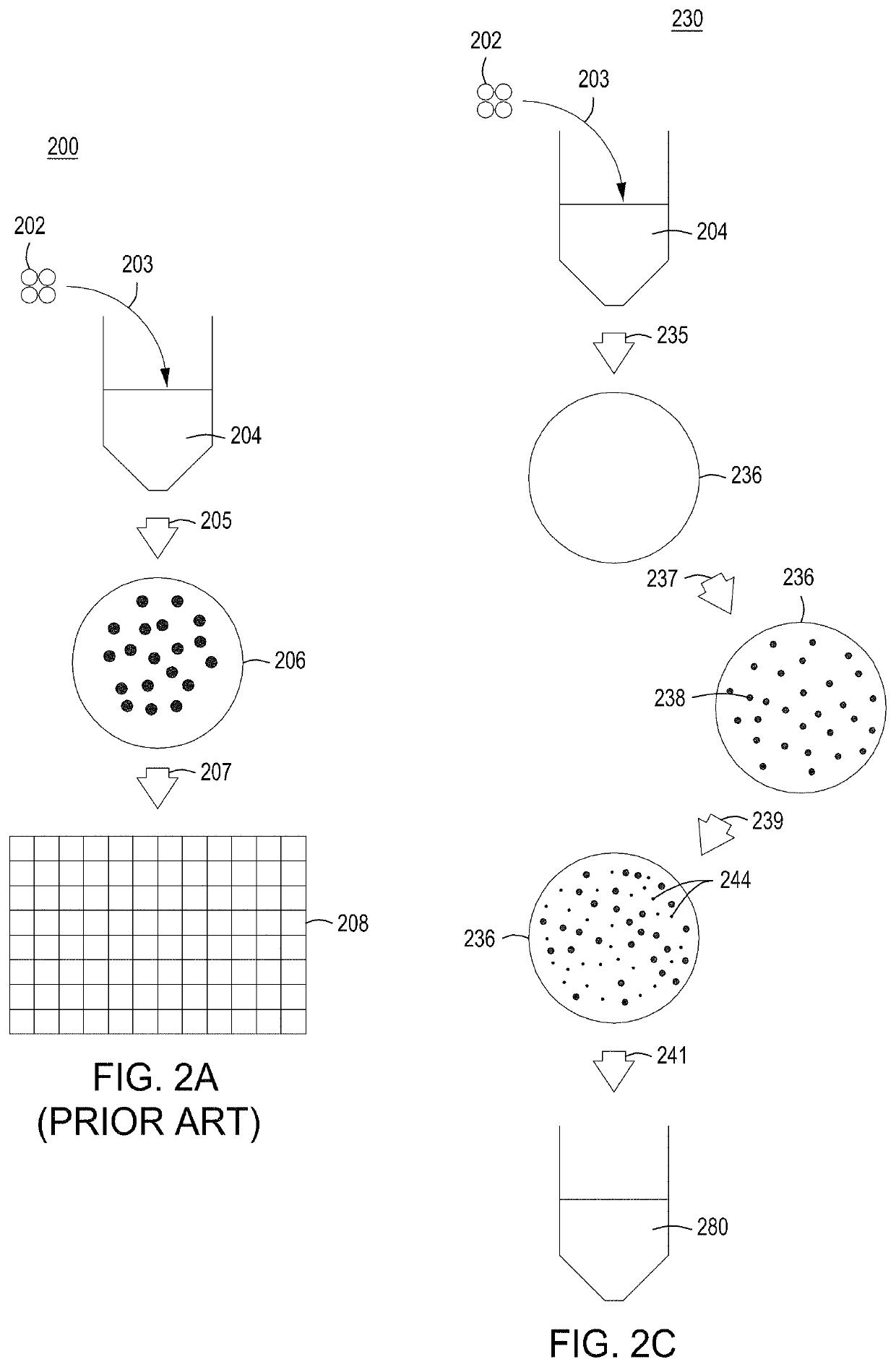Instruments, modules, and methods for improved detection of edited sequences in live cells
- Summary
- Abstract
- Description
- Claims
- Application Information
AI Technical Summary
Benefits of technology
Problems solved by technology
Method used
Image
Examples
example 1
the Fitness of a Model Inducible System
[0278]Basic components of a model system were assessed. The model system comprised E. coli cells transformed with an engine vector, where the engine vector comprised a coding sequence for a MAD nuclease (i.e., MAD 4 or MAD 7 nuclease) under the control of the pL temperature inducible promoter, a chloramphenicol resistance marker, and the λ Red recombineering system under the control of the pBAD promoter (induced by addition of arabinose to the growth medium). The E. coli cells were also transformed with an editing vector comprising an editing oligonucleotide, which in this model system was a library of editing oligonucleotides each configured to inactivate galK, where successful editing results in white (versus red) colonies when plated on MacConkey agar supplemented with galactose as the sole carbon source. In addition, the editing vector comprised a gRNA coding sequence under the control of the pL temperature inducible promoter, a carbenicill...
example 2
assette and Backbone Amplification and Assembly
[0285]Editing Cassette Preparation:
[0286]5 nM oligonucleotides synthesized on a chip were amplified using Q5 polymerase in 50 μL volumes. The PCR conditions were 95° C. for 1 minute; 8 rounds of 95° C. for 30 seconds / 60° C. for 30 seconds / 72° C. for 2.5 minutes; with a final hold at 72° C. for 5 minutes. Following amplification, the PCR products were subjected to SPRI cleanup, where 30 μL SPRI mix was added to the 50 μL PCR reactions and incubated for 2 minutes. The tubes were subjected to a magnetic field for 2 minutes, the liquid was removed, and the beads were washed 2× with 80% ethanol, allowing 1 minute between washes. After the final wash, the beads were allowed to dry for 2 minutes, 50 μL 0.5×TE pH 8.0 was added to the tubes, and the beads were vortexed to mix. The slurry was incubated at room temperature for 2 minutes, then subjected to the magnetic field for 2 minutes. The eluate was removed and the DNA quantified.
[0287]Followi...
example 3
ation of Editing Vector Library into E Cloni®
[0292]Transformation:
[0293]20 μL of the prepared editing vector Gibson Assembly reaction was added to 30 μL chilled water along with 10 μL E Cloni® (Lucigen, Middleton, Wis.) supreme competent cells. An aliquot of the transformed cells were spot plated to check the transformation efficiency, where >100× coverage was required to continue. The transformed E Cloni® cells were outgrown in 25 mL SOB+100 μg / mL carbenicillin (carb). Glycerol stocks were generated from the saturated culture by adding 500 μL 50% glycerol to 1000 μL saturated overnight culture. The stocks were frozen at −80° C. This step is optional, providing a ready stock of the cloned editing library. Alternatively, Gibson or another assembly of the editing cassettes and the vector backbone can be performed before each editing experiment.
PUM
| Property | Measurement | Unit |
|---|---|---|
| Length | aaaaa | aaaaa |
| Length | aaaaa | aaaaa |
| Length | aaaaa | aaaaa |
Abstract
Description
Claims
Application Information
 Login to View More
Login to View More - R&D
- Intellectual Property
- Life Sciences
- Materials
- Tech Scout
- Unparalleled Data Quality
- Higher Quality Content
- 60% Fewer Hallucinations
Browse by: Latest US Patents, China's latest patents, Technical Efficacy Thesaurus, Application Domain, Technology Topic, Popular Technical Reports.
© 2025 PatSnap. All rights reserved.Legal|Privacy policy|Modern Slavery Act Transparency Statement|Sitemap|About US| Contact US: help@patsnap.com



